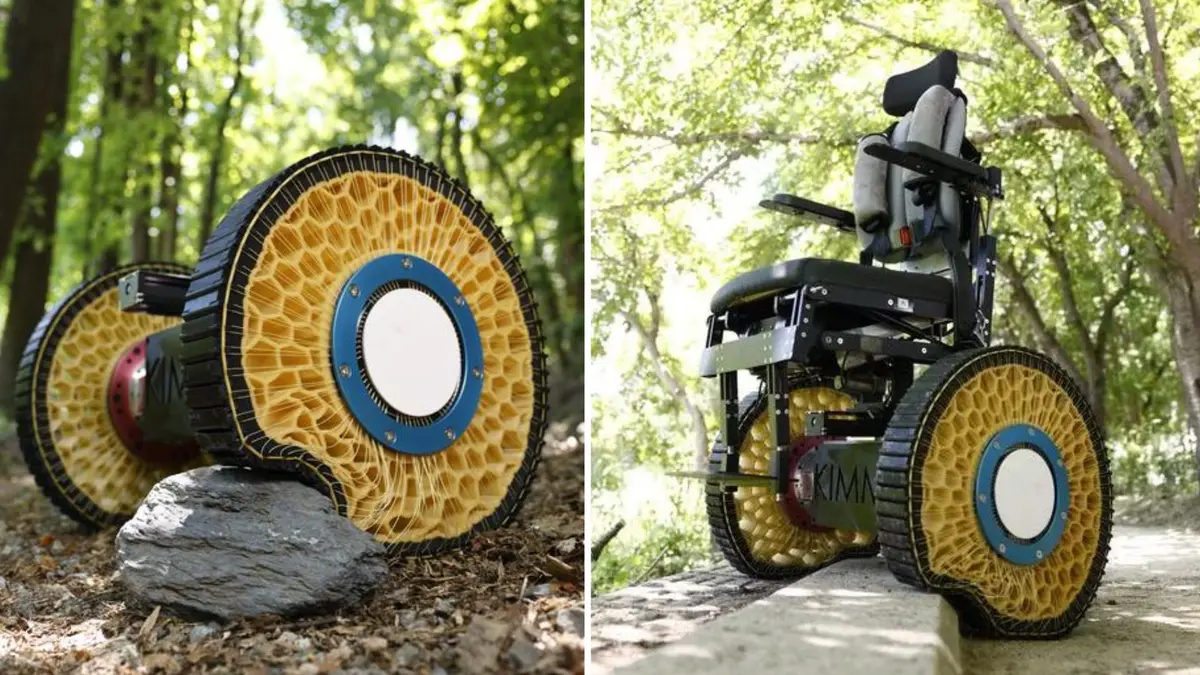
Researchers at the Korea Institute of Machinery and Materials (KIMM) are pioneering a ‘morphing’ wheel technology that could redefine accessibility and movement in robots, wheelchairs, and unmanned vehicles. This adaptive wheel is designed to overcome obstacles up to 1.3 times the height of its radius, potentially allowing wheelchairs and delivery vehicles to navigate curbs, humps, and even stairs with ease.
Inspired by the behavior of water droplets, the wheel transforms from solid to fluid-like when it encounters barriers, enabling it to roll smoothly over various surfaces. For practical applications, KIMM envisions this technology benefiting robots in diverse environments, from industrial settings that demand stability and movement efficiency to battlefield reconnaissance missions.
Song Sung-hyuk, principal researcher and part of KIMM’s AI robotics research team, explained that while current non-pneumatic tires offer some flexibility, they lack the capability to navigate significant obstacles. The morphing wheel’s structure, a combination of a chain outer hoop and spoke wires connected to the hub, adjusts its stiffness automatically in response to terrain changes, thanks to integrated sensors.
The team demonstrated the wheel’s capabilities with a wheelchair prototype climbing stairs with 18-cm steps, carrying a life-size dummy. They also tested the technology at speeds up to 30 kph, and aim to increase its performance to 100 kph—the speed of an average car.
Recognized for its innovative potential, the morphing wheel was featured as the cover article in Science Robotics in August.
Featured image courtesy of Interesting Engineering
Follow us for more updates on South Korea’s morphing wheel.
